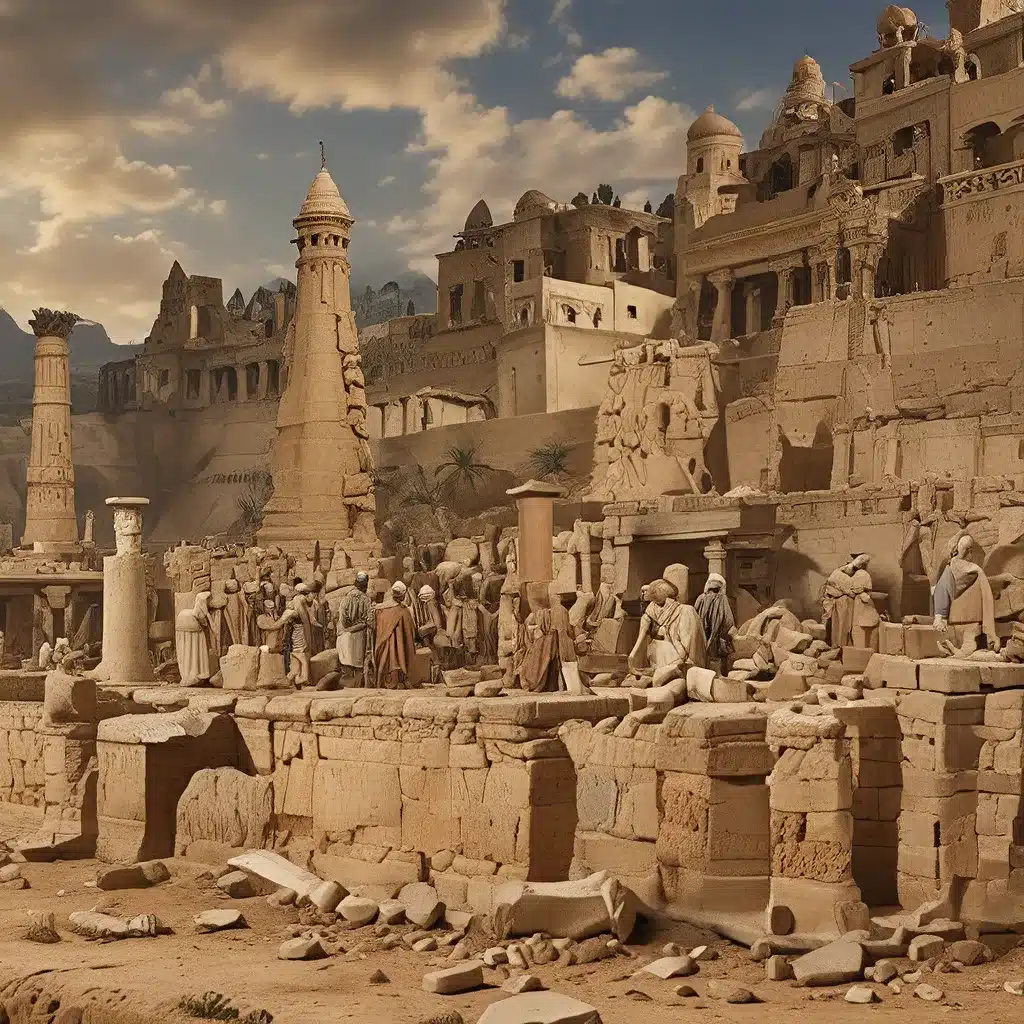
Piecing Together the Puzzle of Ancient Cultures
The study of ancient civilizations has long captivated the minds of scholars and enthusiasts alike. As we delve deeper into the fragments of the past, a fascinating tapestry of human history begins to emerge, revealing the remarkable resilience and ingenuity of our ancestors. From the awe-inspiring architectural wonders of the ancient world to the intricate social structures that governed their societies, each discovery unlocks a new chapter in the human story.
One such civilization that has captured the imagination of archaeologists and historians is the island civilization of Thera, buried under volcanic ash more than 3,500 years ago. For decades, teams of dedicated archaeologists in Greece have been painstakingly attempting to reconstruct the wall paintings that hold invaluable clues to this ancient culture. These frescoes, once vibrant and alive, now lie in fragments, waiting to be pieced back together like an intricate puzzle.
Advances in digital technology have now provided a glimmer of hope in this Herculean task. A team of Princeton computer scientists, collaborating closely with archaeologists in Greece, has developed an automated system for reconstructing excavated fresco mosaics and similar archaeological objects. This innovative approach combines powerful computer algorithms with a processing system that mirrors the traditional procedures followed at excavation sites.
Revolutionizing the Reconstruction of Ancient Artifacts
The “virtual archaeologist” project, as it’s been dubbed, involves placing a fragment on a turntable and using a laser rangefinder to measure its visible surface from various viewpoints. This technology has the potential to dramatically change the way archaeology is conducted, according to David Dobkin, the Phillip Y. Goldman ’86 Professor in Computer Science and Dean of the Faculty at Princeton.
The traditional approach to reconstructing these ancient artifacts has been a painstakingly slow and laborious process, with archaeologists meticulously piecing together the fragments by hand. The virtual archaeologist system, however, promises to streamline this process, enabling researchers to digitally reassemble the fragments with greater speed and accuracy.
“This Herculean task — more than a century of further work at the current rate — soon may get much easier thanks to an automated system developed by a team of Princeton University computer scientists working in collaboration with archaeologists in Greece,” the Princeton University news report states.
The implications of this technological advancement are far-reaching. By accelerating the reconstruction of ancient artifacts, researchers can gain deeper insights into the cultural, social, and artistic aspects of these long-forgotten civilizations. The ability to virtually reassemble these fragments opens up new avenues for understanding the past, unlocking the secrets hidden within the remnants of these lost worlds.
Decoding the Mysteries of the Past
The reconstruction of the Thera wall paintings is just one example of the ongoing efforts to unravel the mysteries of ancient civilizations. Across the globe, archaeologists and historians are engaged in a race against time to preserve and interpret the fragile vestiges of the past.
In The Lost Kingdoms, a website dedicated to the study of ancient history and archaeology, experts delve into the complexities of these bygone eras, shedding light on the intricate social structures, technological innovations, and cultural legacies that continue to shape our understanding of the human experience.
One of the most intriguing aspects of this field of study is the constant evolution of theories and perspectives. As new discoveries are made and technologies advance, our understanding of ancient civilizations is continuously refined and rewritten. The reconstruction of archaeological fragments, for example, has the potential to unveil previously unknown insights, challenging long-held assumptions and opening up new avenues of inquiry.
Unlocking the Secrets of the Past
The study of ancient civilizations is not merely an academic pursuit; it is a journey of discovery that reveals the resilience, ingenuity, and shared humanity that has defined our species throughout history. From the grand architectural wonders of the past to the intricate social structures that governed their societies, each fragment of the past holds the potential to unlock a new chapter in our collective understanding.
As the virtual archaeologist project and other innovative technologies continue to revolutionize the field of archaeology, the pace of discovery is accelerating. Researchers can now peel back the layers of time with greater precision and efficiency, shedding light on the mysteries that have long captured the imagination of scholars and the public alike.
In the pages of The Lost Kingdoms, we invite you to join us on this captivating exploration of the past. Discover the stories that have been buried for centuries, and witness the rebirth of ancient civilizations as we piece together the fragments of history, one by one.


